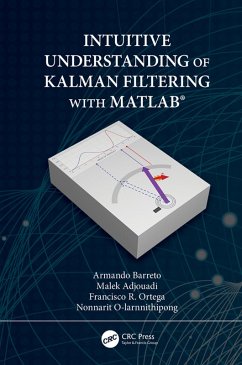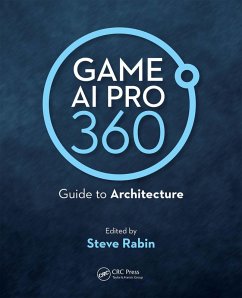Malek Adjouadi, PhD, is a Ware professor with the Department of Electrical and Computer Engineering at Florida International University, Miami. He received his PhD from the Electrical Engineering Department at the University of Florida, Gainesville. He is the founding director of the Center for Advanced Technology and Education funded by the National Science Foundation. His earlier work on computer vision to help persons with blindness led to his testimony to the US Senate on the committee of Veterans Affairs on the subject of technology to help persons with disabilities. His research interests are in imaging, signal processing and machine learning with applications in brain research and assistive technology.
Armando Barreto, PhD, is a professor of the Electrical and Computer Engineering Department at Florida International University, Miami, as well as the director of FIU's Digital Signal Processing Laboratory, with more than 25 years of experience teaching DSP to undergraduate and graduate students. He earned his PhD in electrical engineering from the University of Florida, Gainesville. His work has focused on applying DSP techniques to the facilitation of human-computer interactions, particularly for the benefit of individuals with disabilities. He has developed human-computer interfaces based on the processing of signals and has developed a system that adds spatialized sounds to the icons in a computer interface to facilitate access by individuals with "low vision." With his research team, he has explored the use of Magnetic, Angular-Rate and Gravity (MARG) sensor modules and Inertial Measurement Units (IMUs) for human-computer interaction applications. He is a senior member of the Institute of Electrical and Electronics Engineers (IEEE) and the Association for Computing Machinery (ACM).
Francisco R. Ortega, Ph.D. is an Assistant Professor at Colorado State University and Director of the natural user interaction lab (NUILAB). Dr. Ortega earned his Ph.D. in Computer Science (CS) in the field of Human-Computer Interaction (HCI) and 3D User Interfaces (3DUI) from Florida International University (FIU). He also held a position of Post-Doc and Visiting Assistant Professor at FIU between February 2015 to July 2018. Broadly speaking, his research has focused on gesture interaction, which includes gesture recognition and elicitation. His main research area focuses on improving user interaction by (a) eliciting (hand and full-body) gesture sets by user elicitation, and (b) developing interactive gesture-recognition algorithms. His secondary research aims to discover how to increase interest for CS in non-CS entry-level college students via virtual and augmented reality games. His research has resulted in multiple peer-reviewed publications in venues such as ACM ISS, ACM SUI, and IEEE 3DUI, among others. He is the first-author of Interaction Design for 3D User Interfaces: The World of Modern Input Devices for Research, Applications, and Game Development book by CRC Press.
Nonnarit O-larnnithipong, Ph.D., is an Instructor at Florida International University. Dr. O-larnnithipong earned his Ph.D. in Electrical Engineering, majoring in Digital Signal Processing from Florida International University (FIU). He also held a position of Post-Doctoral Associate at FIU between January to April 2019. His research has focused on (a) implementing the sensor fusion algorithm to improve orientation measurement using MEMS inertial and magnetic sensors, and (b) developing a 3D hand motion tracking system using IMUs and infrared cameras. His research has resulted in multiple peer-reviewed publications in venues such as HCI-International and IEEE Sensors.















